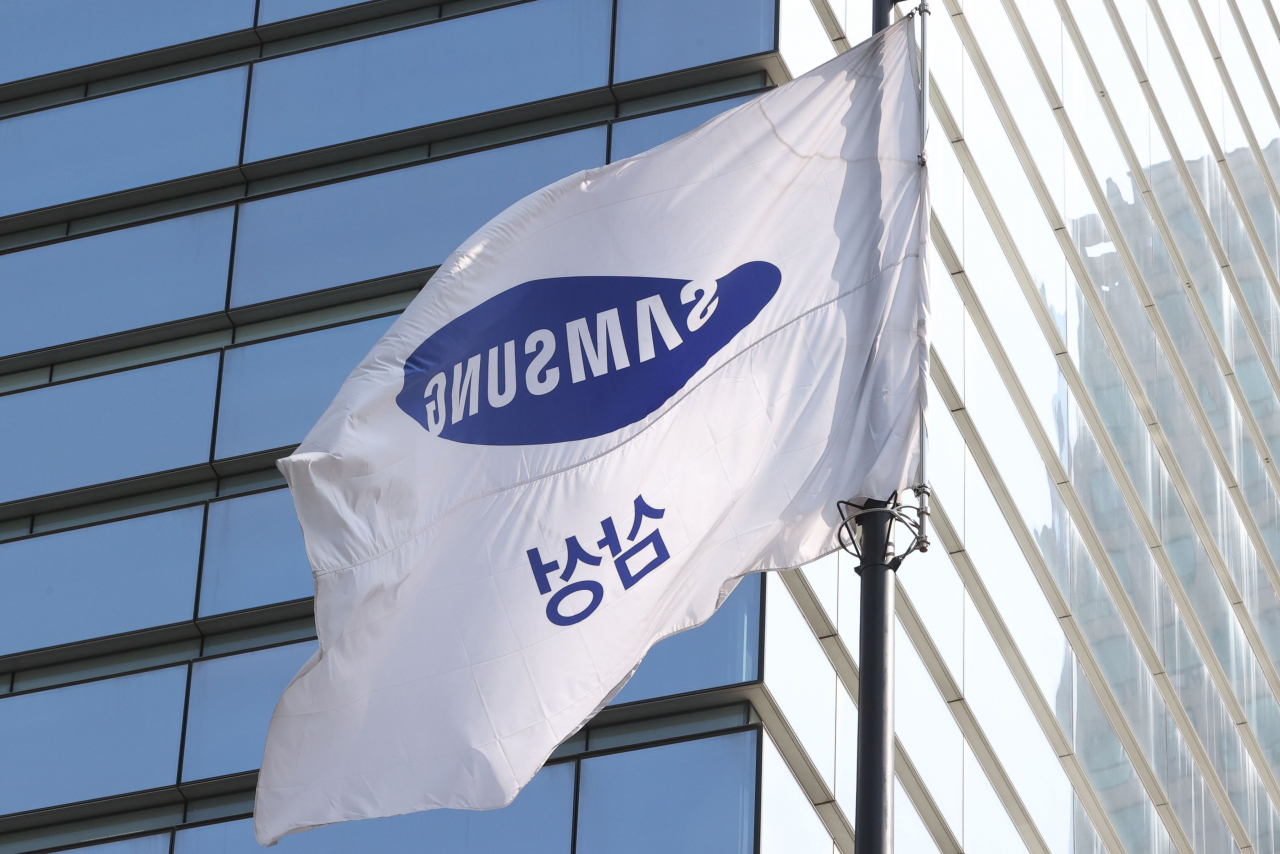 |
A Samsung flag flies outside its office building in southern Seoul. (Yonhap) |
Doubts have been raised over Samsung Group’s latest decision to make the executives of its key tech affiliates -- Samsung Electronics, Samsung SDI, Samsung SDS and Samsung Display -- work an extra day per week as part of the group's emergency measures to tackle ongoing business uncertainties.
Critics pointed out that the six-day workweek for executives is "outdated and inefficient," and that it lies in contrast to other local Big Tech firms who are following the global trend of adopting a four-day workweek in the pursuit of an improved work-life balance for employees. Some even worry that the move may end up dampening the overall morale of employees.
“The whole world is already following the trend of moving from a five-day workweek to a four-day workweek, but (Samsung is now) going completely against the global paradigm. I’m not sure if it is the decision made by Chairman Lee Jae-yong or the executives, but I think it was a bad move,” Oh Il-sun, director of Korea CXO Institute, told The Korea Herald.
Executives from Samsung C&T, Samsung Heavy Industries and Samsung E&A, have already moved to a six-day workweek, and financial affiliates of Samsung Group, including Samsung Life Insurance, are also reportedly considering joining the longer workweek regime soon, according to industry sources.
Although Samsung Electronics estimated its first-quarter operating profit to hit 6.6 trillion won ($4.8 billion), up 931.3 percent on-year, signaling a dramatic resurgence in its semiconductor business on rebounding demand for memory chips, sources believe that Samsung came up with the idea to increase the work week as it views that the real crisis has begun and that now is the time to renew the overall atmosphere of the group's management.
Last year, the tech giant posted a deficit of 15 trillion won in the device solutions division alone, which is in charge of the company's semiconductor business, due to worsening business conditions. The intensifying conflict between Iran and Israel and the continued war in Ukraine have also spurred a jump in exchange rates and oil prices.
Additionally, over 2,000 members of a Samsung Electronics labor union, or 21 percent of the company's workforce, held a rally last week to pressure the management to improve their working conditions in terms of wages, bonuses and paid holidays. The recent general election result also became a hurdle for Samsung as it is believed that bills that had been expected to provide tax benefits or deregulation for companies have lost their momentum, sources added.
“(Chairman Lee) has shown soft leadership, contrary to previous owners, but with the Taiwan Semiconductor Manufacturing Co. outpacing Samsung in market value and profit, as well as the various crises surrounding the Korean conglomerate, it appears that Lee decided to come up with a solution to regain discipline,” said Hwang Yong-sik, a professor at Sejong University’s College of Business Administration.
"It's a way of trying to tighten the slack. This can be seen as a symbolic decision that signals Samsung's party is over,” the expert said. “Samsung has to do something to recapture the past 10 years of growth and success for TSMC and this can also be seen as a display to the public of (the group's desperation)."
The effectiveness of Samsung’s six-day workweek for executives to save the country’s No. 1 conglomerate from the crisis is questionable, according to Oh.
“If the business environment itself is unfavorable, there is nothing you can do about it. It is a leader’s role to suggest strategies and alternatives to overcome crisis, but if the six-day workweek had been a solution to overcome the emergency, (Samsung) would have done it a long time ago. So the methodology itself is dubious,” the institute director said.
Experts forecast that there is a high possibility that other local conglomerates will follow suit with Samsung's workday extension plan.
In February, SK Group also resumed biweekly Saturday meetings for top executives from its affiliates for the first time in 24 years since it adopted the five-day workweek back in July 2000.
Other conglomerates such as Hanwha, GS, HD Hyundai and Doosan have not yet taken any special measures but are reportedly closely monitoring volatile global economic situations, including exchange rates, interest rates and inflation, sources said.







![[Today’s K-pop] Blackpink’s Jennie, Lisa invited to Coachella as solo acts](http://res.heraldm.com/phpwas/restmb_idxmake.php?idx=644&simg=/content/image/2024/11/21/20241121050099_0.jpg)